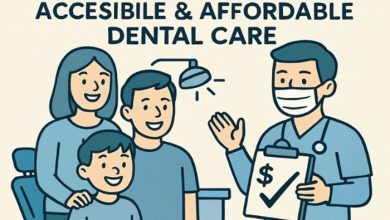
Hearing evaluations, also called hearing assessments or tests, are comprehensive examinations performed by qualified audiologists or hearing care professionals. These evaluations measure how well a person can hear different sounds and frequencies, identify potential hearing issues, and provide guidance for effective treatment. Relying on trusted hearing evaluation services ensures accurate results and timely intervention, which can make a significant difference in managing hearing health.
Understanding the Importance of Hearing Evaluations
Hearing loss can occur due to several factors, including aging, prolonged exposure to loud noises, genetics, infections, and certain medical conditions. Because hearing loss often develops gradually, individuals may not recognize the early signs, such as
- Frequently asking people to repeat themselves
- Turning up the volume on televisions or devices
- Difficulty understanding conversations in noisy environments
- Ringing or buzzing sounds in the ears
Left untreated, hearing loss can lead to social isolation, communication challenges, and even cognitive decline. Hearing evaluations allow professionals to detect problems early and recommend interventions before the condition worsens. Clinics like Active Hearing Philippines provide comprehensive hearing assessments and tailored solutions to help individuals maintain optimal hearing health.
What Hearing Evaluation Services Include?
Trusted hearing evaluation services provide a thorough assessment of an individual’s auditory health. The process typically includes the following steps:
Medical and Lifestyle History
The audiologist reviews the patient’s medical history, lifestyle, and potential risk factors that may contribute to hearing loss. This step helps identify underlying causes and informs the overall evaluation. Clinics like 20dB Hearing provide comprehensive assessments and tailored solutions to ensure accurate diagnosis and effective hearing care.
Physical Examination of the Ears
The professional examines the ear canal and eardrum to check for blockages, infections, or structural issues that could affect hearing.
Audiometric Testing
These tests measure hearing sensitivity across different frequencies and intensities. Pure tone audiometry is a common test that identifies the softest sounds a person can hear. Speech audiometry evaluates the ability to understand spoken words at various volumes.
Tympanometry and Acoustic Reflex Testing
These assessments examine middle ear function, detect fluid in the ear, and assess reflex responses. This information helps identify conditions that may affect hearing but are not related to nerve damage.
Counseling and Recommendations
After the evaluation, the audiologist discusses the results, explains the type and degree of hearing loss if present, and provides recommendations. This may include hearing aids, assistive listening devices, or lifestyle adjustments to protect hearing.
Benefits of Trusted Hearing Evaluation Services
Using trusted hearing evaluation services ensures accurate, reliable, and professional care. The benefits include:
Early Detection of Hearing Loss
Identifying hearing issues early allows for timely interventions, preventing further deterioration and improving long-term outcomes.
Personalized Treatment Plans
Audiologists tailor recommendations to the individual’s hearing needs, lifestyle, and preferences, ensuring optimal results.
Improved Communication and Quality of Life
Timely detection and intervention help patients maintain social interactions, work performance, and overall life satisfaction.
Preventing Complications
Early detection can prevent complications such as cognitive decline, balance problems, and social isolation that may result from untreated hearing loss.
Professional Expertise and Technology
Trusted hearing evaluation services use the latest testing equipment and techniques, providing reliable results and informed guidance.
Why Accuracy Matters
Accurate hearing evaluations are essential because they form the basis for treatment decisions. Inaccurate assessments can lead to incorrect device settings, ineffective interventions, or delays in care. Trusted services prioritize precision, using calibrated equipment, experienced audiologists, and comprehensive testing protocols to ensure patients receive the best possible care.
Additionally, audiologists provide education on hearing health, preventive measures, and device management, helping patients make informed choices about their auditory wellness.
Signs You Should Get a Hearing Evaluation
Regular hearing evaluations are recommended for people at risk of hearing loss, including older adults and individuals exposed to frequent loud noises. Some signs that a hearing evaluation may be necessary include:
- Difficulty following conversations in groups
- Frequently asking people to repeat themselves
- Turning up the volume of televisions or devices
- Experiencing ringing, buzzing, or hissing in the ears
- Avoiding social situations due to hearing challenges
Early evaluation allows for proactive management and prevents hearing loss from affecting daily life and communication.
The Role of Hearing Evaluations in Preventive Health
Hearing health is closely linked to overall well-being. Studies have shown that untreated hearing loss can contribute to cognitive decline, depression, and decreased quality of life. By undergoing regular evaluations, individuals can take a proactive approach to prevent these issues.
Trusted hearing evaluation services also provide guidance on hearing protection, including strategies to reduce noise exposure, use of protective devices, and maintaining ear hygiene. These preventive measures support long-term auditory health and reduce the risk of future hearing problems.
Choosing a Trusted Hearing Evaluation Service
When selecting a hearing evaluation service, it is important to consider factors such as:
- Credentials of the Audiologist:Ensure the professional is licensed and experienced in comprehensive hearing assessments.
- Range of Services:Look for facilities that offer a complete evaluation process, including audiometric testing, counseling, and device recommendations.
- Use of Modern Technology:Trusted services use calibrated equipment and updated testing methods to ensure accuracy.
- Patient Reviews and Reputation:Positive feedback from patients reflects reliability and quality of care.
- Follow-Up Care:A good hearing evaluation service provides ongoing support, including follow-up testing and device adjustments if needed.
By choosing a trusted provider, patients can feel confident that their hearing health is in expert hands.
Conclusion
Hearing loss can have a significant impact on communication, social interaction, and overall quality of life. Early detection is essential to prevent further deterioration and improve outcomes. Trusted hearing evaluation services provide comprehensive, accurate, and professional care that ensures hearing issues are identified promptly.
By relying on expert audiologists, state-of-the-art technology, and personalized recommendations, patients can manage hearing loss effectively, maintain auditory health, and enjoy a higher quality of life. Regular hearing evaluations are not just about detecting problems; they are an investment in long-term wellness and a proactive step toward preserving one of the most important senses.
For anyone concerned about hearing changes or at risk of hearing loss, scheduling an evaluation with a trusted provider is a critical first step toward better hearing health and overall well-being.




